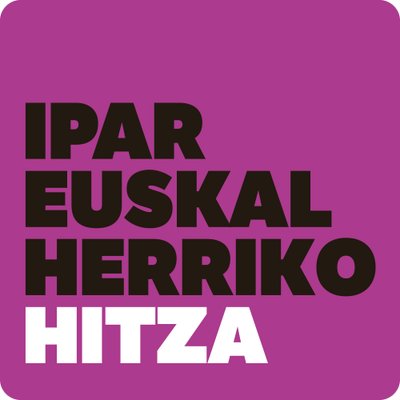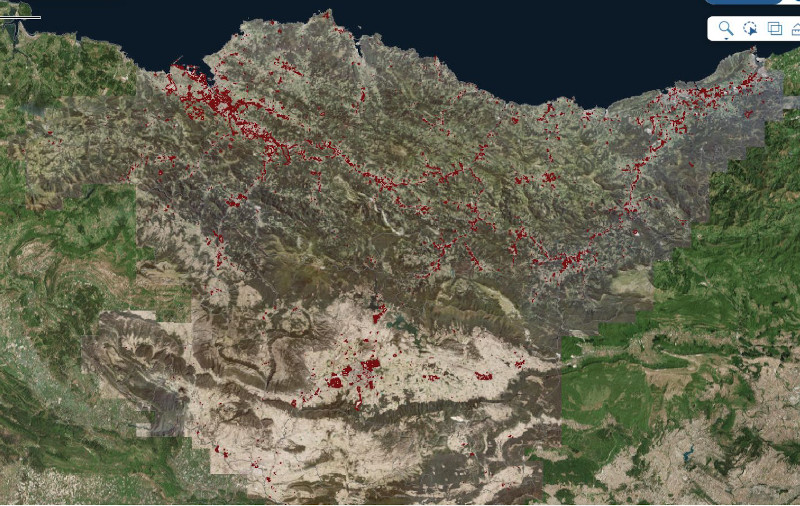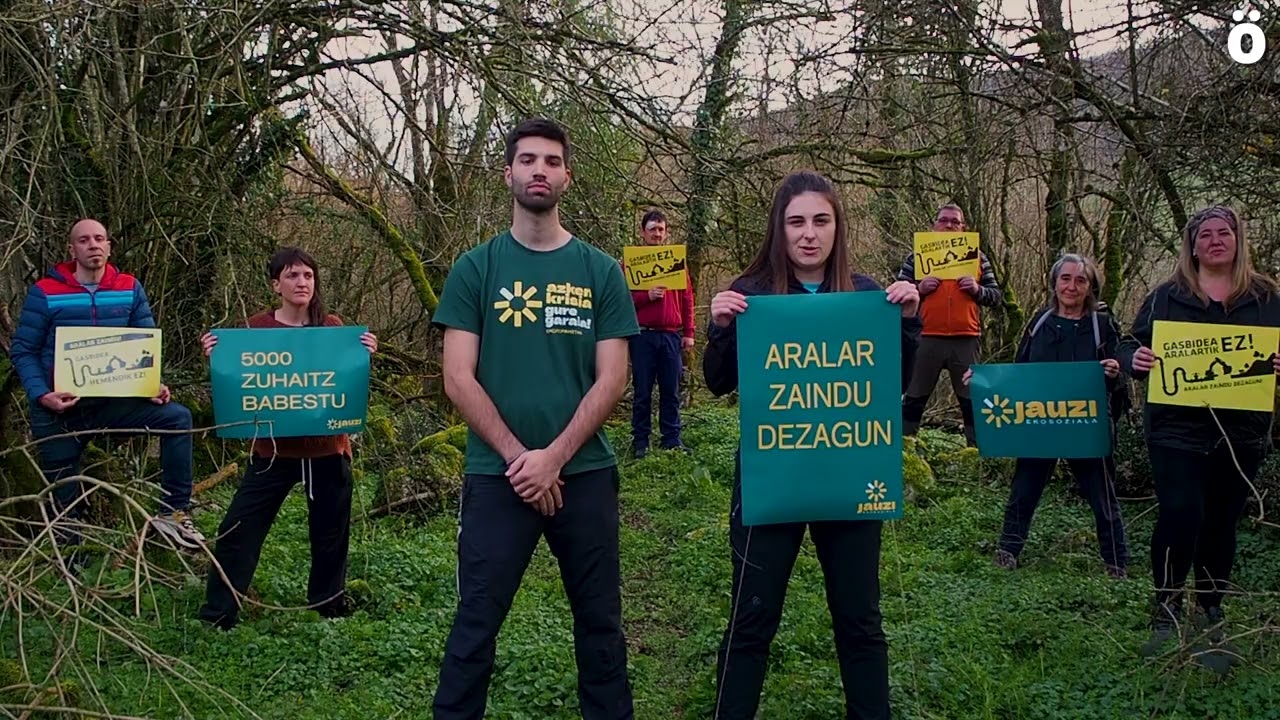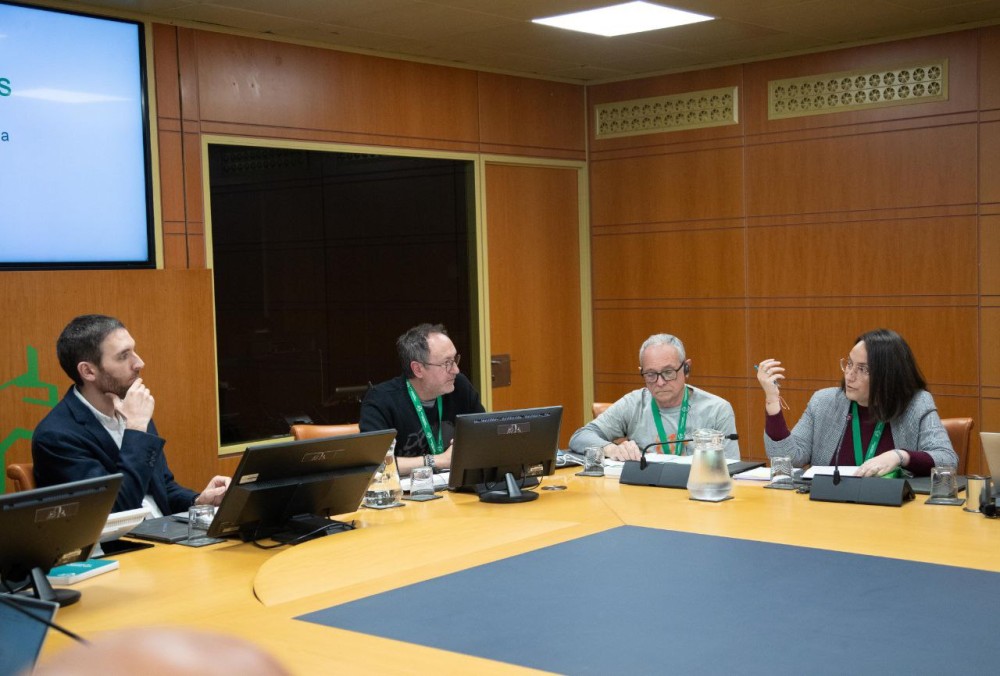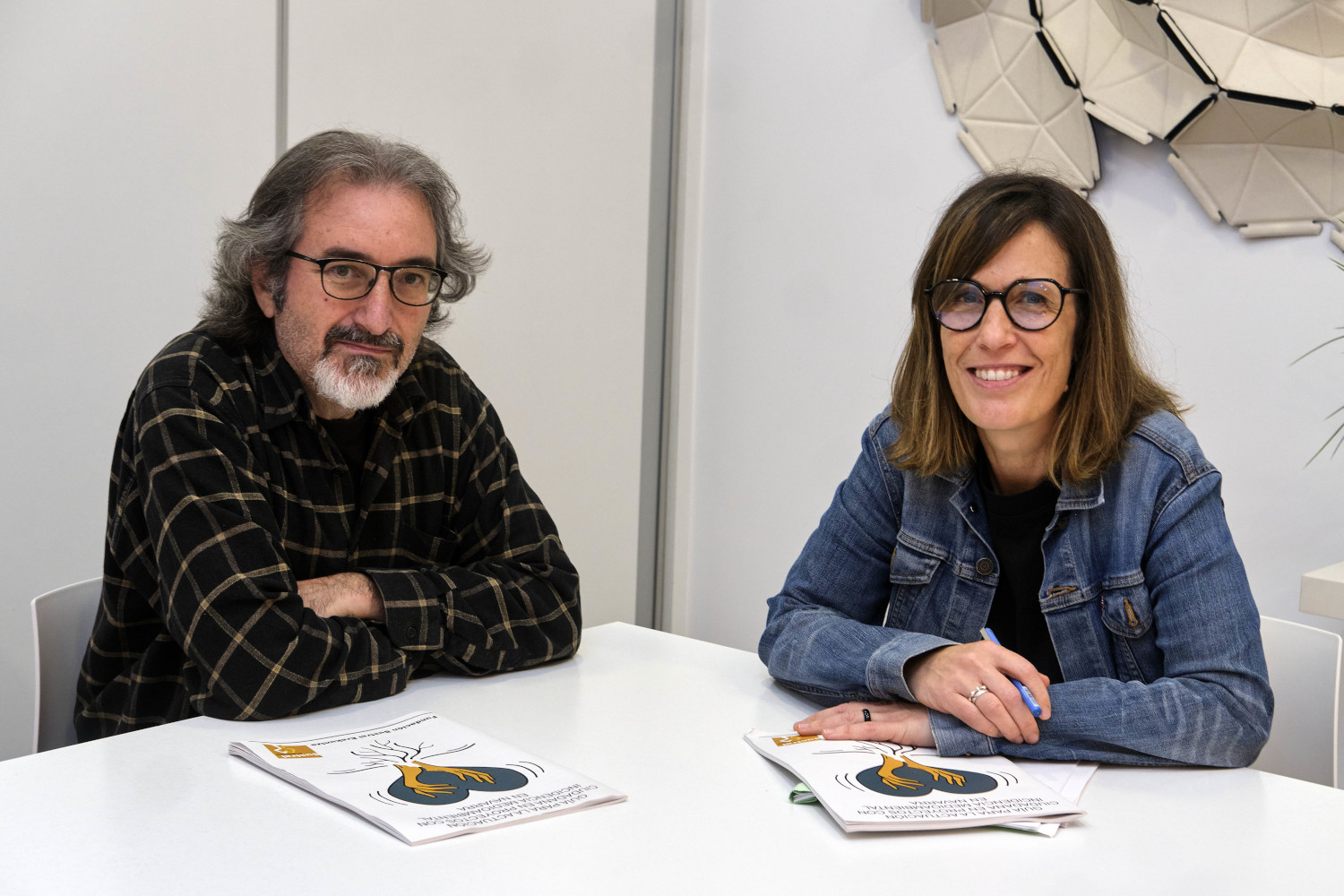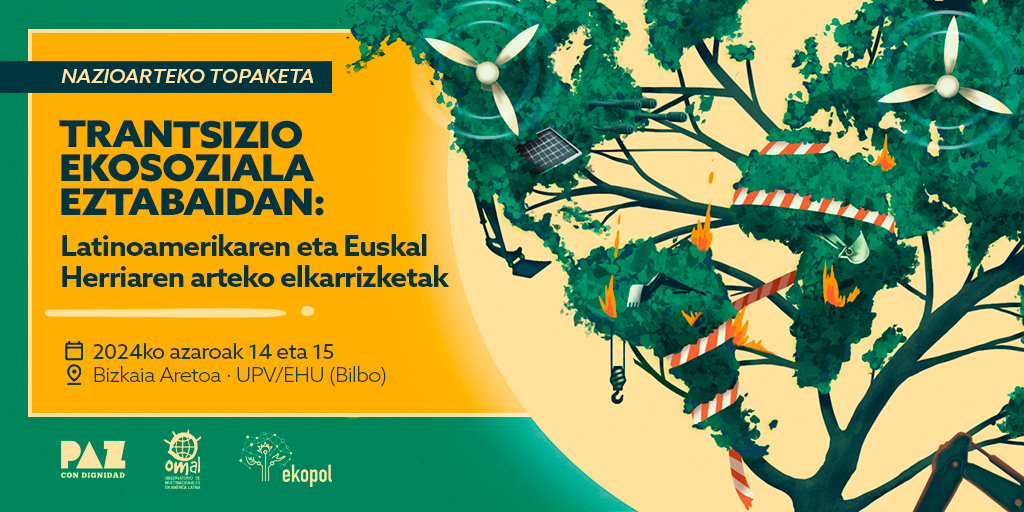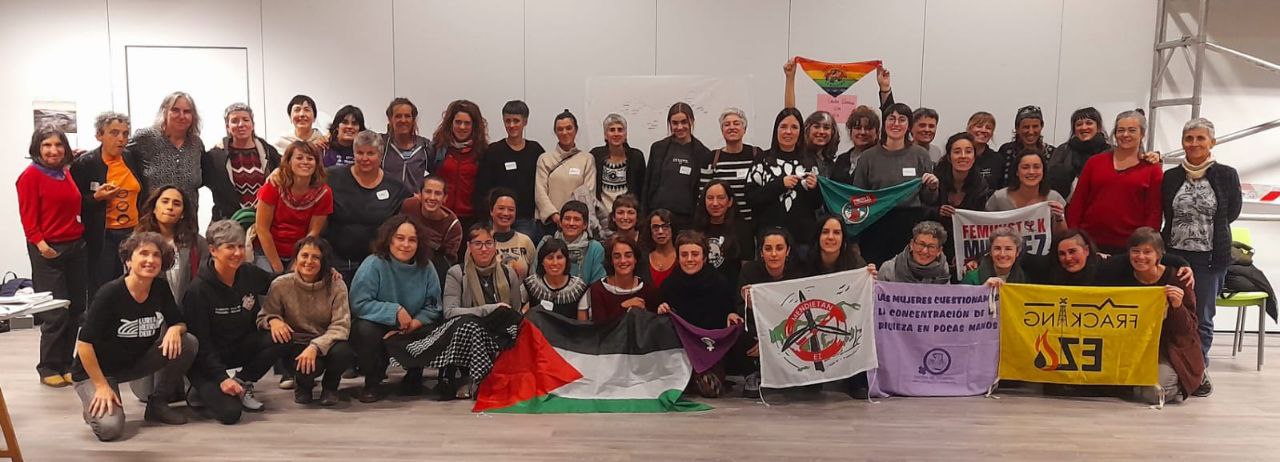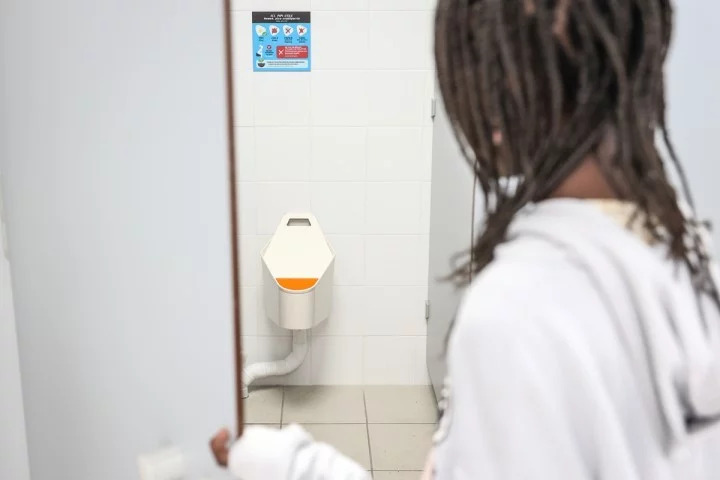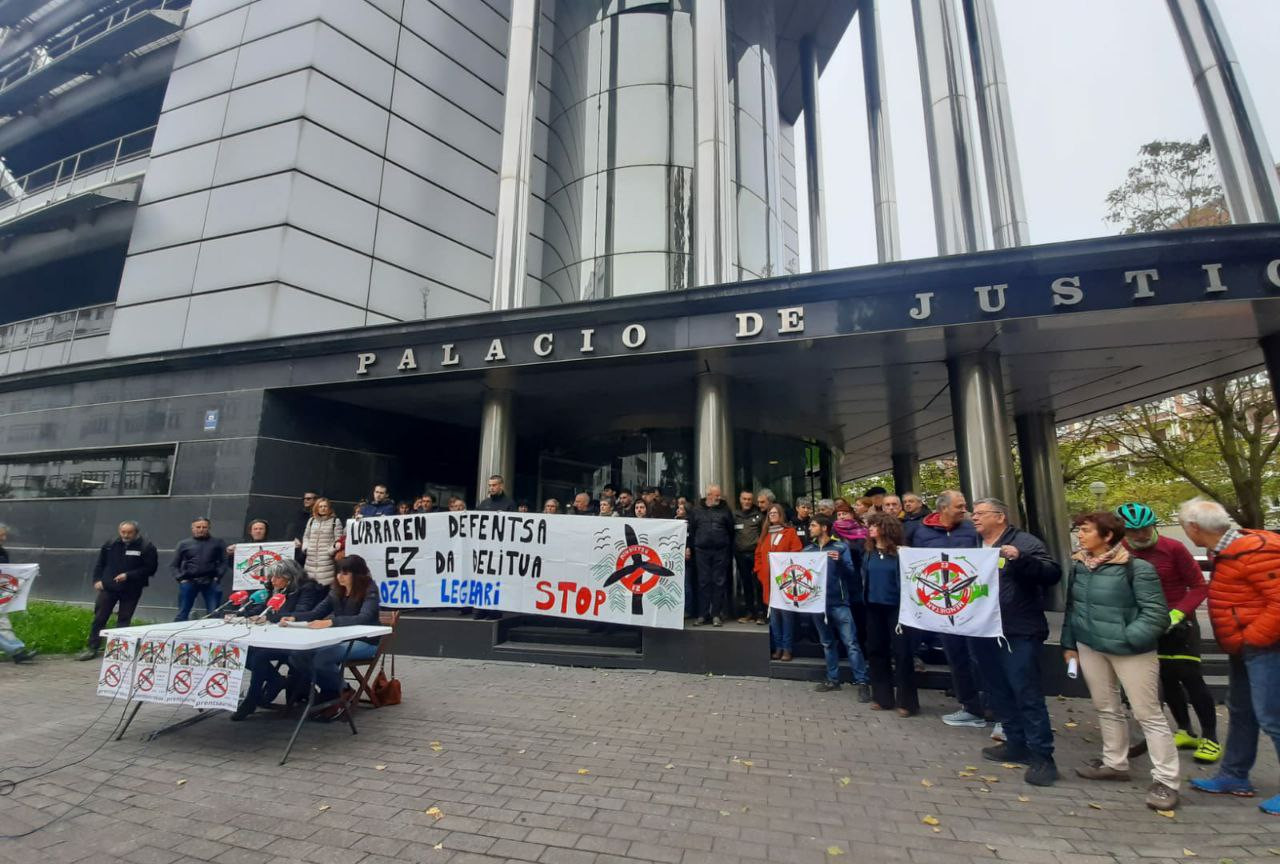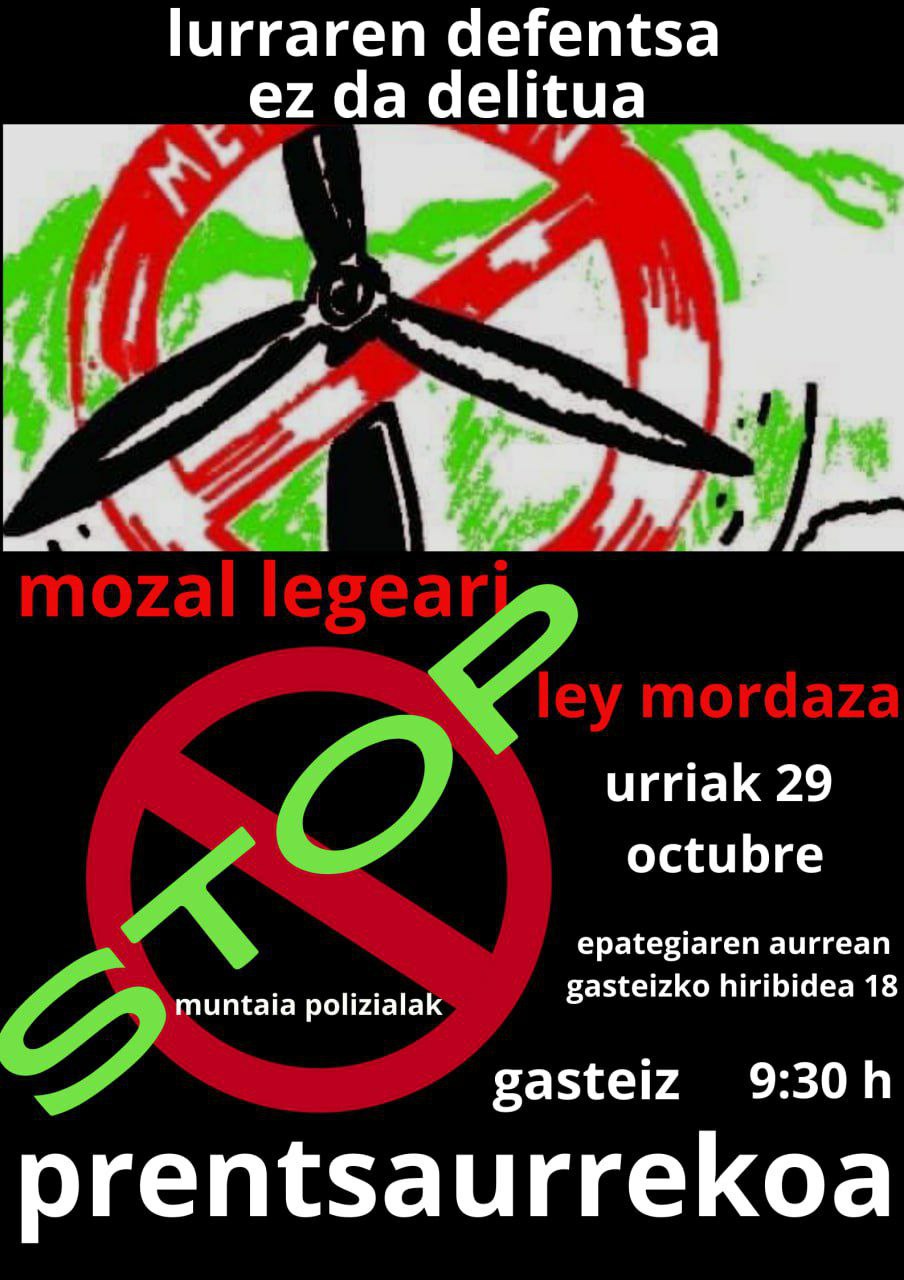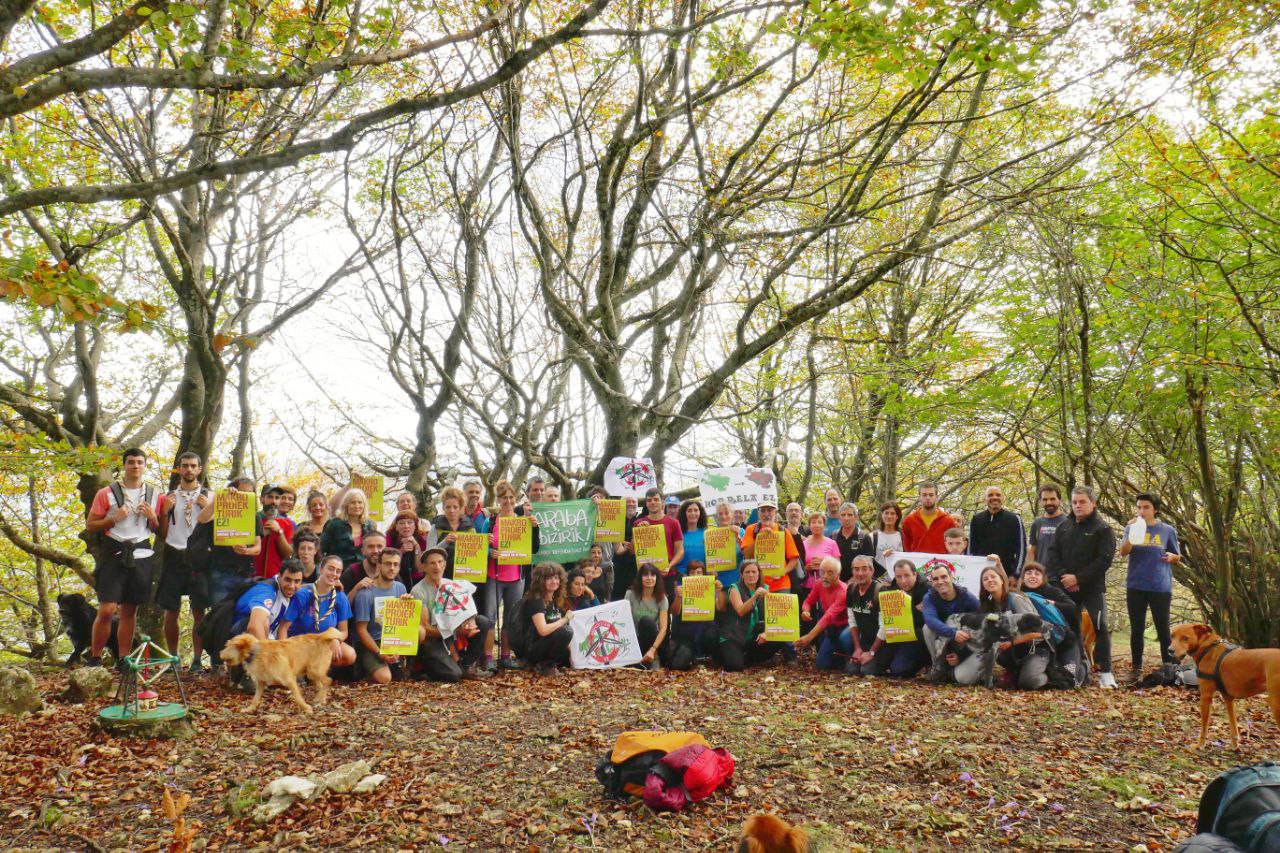"Everyone knows the bear, but not the Basque bear"
- In the memory of the magisterial studies, Üthürralt took the bear as its theme. The first theoretical part has just been published by the editorial Sé; he would like to publish the second pedagogical part.

Being the bear a source of controversy, why have you chosen it as a subject for writing memory?
It is two or three years since the Slovenian bears have been reintroduced, the situation is certainly not easy, but from the outset I wanted to investigate the bear culturally. I did not want to get into these conflicts or tensions of now, that was not the goal; each one has his ideas, and since I am quite close to the world of agriculture by my grandfather… I stayed in the twentieth century, I have abandoned the stories of bear that existed before, just in case…
As I say in the book, I saw a question two or three years ago in the game: How do santagraztars call the bear? And the answer was "aitañi." Since then, I was interested in knowing why they called him like this, but without having assimilated him… Then I discovered the thesis of the American Roslyn Franck, who made connections with the bear as our ancestor and with some peoples of Sardeinia. As I had to make a memory last year, as I was looking for the issue, the idea of the bear came back. I saw that in schools little mention is made of the bear, seeing that many stories about the bear are translations. Documents or texts of Basque origin are not so adapted to children. I've researched in the first theoretical part of memory, and in the second I've created a pedagogical sequence about the bear. As a goat teacher and the carnivals in the area have the character of the bear, I put together a great project with the students.
Has the cultural relationship changed with the bear?
I'm sure it does. Now, in Euskal Herria, I think no one believes that the bear is our ancestor. But, as can be seen in my book, this topic was addressed by Txomin Peillen. However, in the 1980s the Santagraztarras mentioned that story; I still cannot say they believed, I think not, but not so long ago that the bear had a link with the Basques. He has had it for a long time and has left herex, as in carnivals. But a little bit of heresy stops.
The second part of your work is a pedagogical goal.
I've created a multidisciplinary pedagogical sequence, a project. That means you'll hear about the bear for two months, every day and in every corner. Maybe it’s a weight for some… We’ve worked in art, science, history and geography, in Euskera – in literature and analyzing textual documents – in number…
Do you mean that you've taken it from theory to practice?
With this type of project, the most interesting thing in its beginnings is to share the knowledge of children. Asking what they knew about the bear, not much: that they like the prefect's honey, that references like the bear Winnie is big… For them it was not a nearby cabala, but if they are bears 150 or 200 kilometers from Ahetze. I knew some of you are going to ski to the ports of Bearn [Occitania], I made a link with a bear attack on Cauterets, and they knew that. But they did not know the bear of carnivals; in the Basque texts, which are scarce, they do not know it, neither in a song, nor in anything. It's a cabal known for all bears, but they didn't know the Basque bear.
You have also brought to the project the bear that appears in the Carnivals.
Yes, in the Carnavales of Ahetze they do not have the character of the bear, but in the following villages they do: In Arbona, in San Juan de Luz, in Uztaritze the carnivals are called Hartzaro… The day of the bear is in every corner, and how I did not know it.
You are the son of a labrador, you have participated in the masks with the presence of the bear… What did you know about the bear and what have you learned when researching?
I had some information, but I'm sure you learn the knowledge with such research. I have not assimilated it from the point of view of agriculture, I hear a lot about it. Culturally I've learned a lot; I had a lot of knowledge about Zuberoa's bear, but not so much about the bears around, although I had heard that there was a bear in Lapurdi, and those of Arizkun and Ituren [Navarra] are famous. In Zuberoa's face masks, it's not the most interesting by force, because it's mostly a character to make you laugh.
What has you most interested in other carnivals?
See how many villages there is already the bear, with so many lejanías in Bizkaia, Navarra, in the carnivals of Lapurdi or in the masks of Zuberoa, how is it that the bear exists in everything? That's it. In Arizkun he is the main character of the carnivals, with the awakening of the bear. We return to the essentials: that is, that carnivals are the maturation of the grass and the delay of winter, life is divided into a male in the time when the bear wakes up from his sleep. In carnivals, that's the bear, and it's interesting to see that it still exists in every corner. In Zuberoa I don't know whether it's been before or not, we don't know that, but the bear doesn't have that role anymore. Agosti Xaho left some details, saying he was the character of the bear, but he is little herex.
Are children interested in the symbols of the bear?
They love both the symbol and the mythology. It's like a magical world, it's not a reality or it's everyday stuff, it's stories. They often love mythology and beliefs. In my opinion, it is necessary to rely on the old documents of Euskal Herria and to create books or tools for what not children. I think there's a lack of material, it's a domio. I've been told that my sequence is interesting, because the bear is not so widespread. I'd like to create something else by relying on what I've created: a textbook about tea, and why not, by doing an experiment in a room. I've done it myself, but halfway through COVID-19. I cut off when I got the most interesting one. The sum was the story of Junes Cazenave, a part that I could not apply in practice. If another teacher wants to work, I'd like to leave him free.
The update of the Navarra Energy Plan goes unnoticed. The Government of Navarre made this public and, at the end of the period for the submission of claims, no government official has explained to us what their proposals are to the citizens.
The reading of the documentation... [+]



